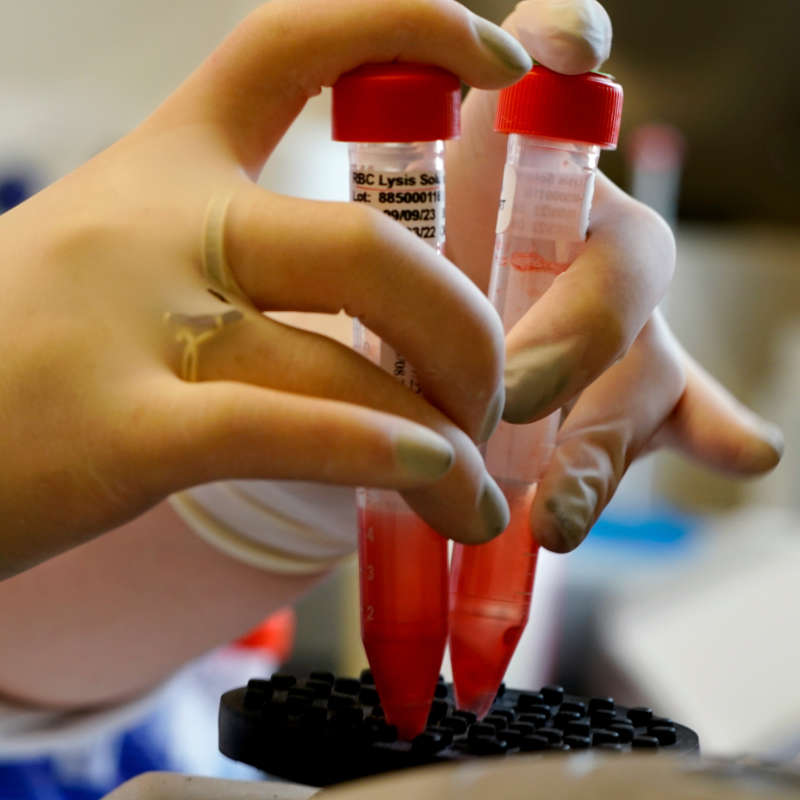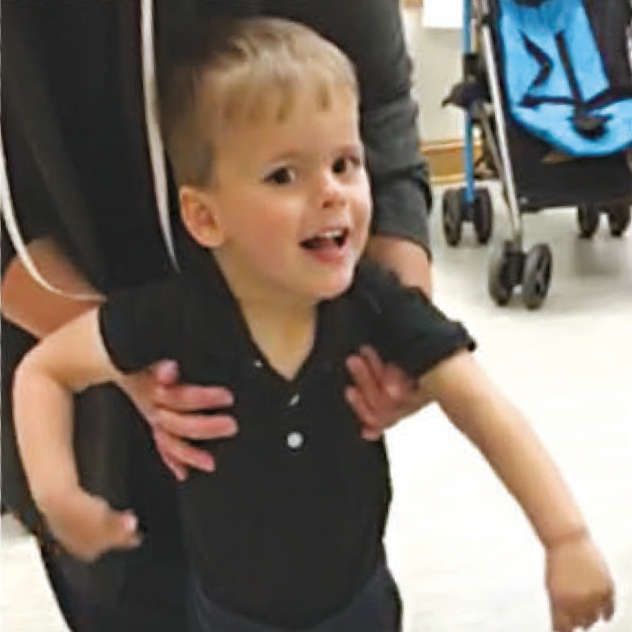Our Research
 Our clinic’s medical services focus on three critical areas – patient care, education and research. As a medical facility, our research efforts are patient-centered. We always seek faster diagnoses, better understanding and improved treatments, applying what we learn in the lab to our clinical practice.
Our clinic’s medical services focus on three critical areas – patient care, education and research. As a medical facility, our research efforts are patient-centered. We always seek faster diagnoses, better understanding and improved treatments, applying what we learn in the lab to our clinical practice.
The children we see at our clinic are affected by rare genetic disorders and have multiple, chronic and sometimes life-threatening diseases. Our patient-oriented research focuses on early diagnosis and ground-breaking treatment, bringing relief to the children and hope to their families.
Our approach to translational medicine effectively integrates biomedical research with highly personalized patient care, resulting in life-changing, and sometimes life-saving, outcomes for the children we treat.
Equipped with a state-of-the-art molecular diagnostics laboratory, we perform specialized genetic testing and research in-house. Since bringing diagnostic services onsite, we have dramatically increased our patient diagnosis rate from 20% – 80%. We have also identified a number of rare disorders in our community.
Working with an ever-expanding network of local, national and international partners, we’ve been involved in cutting-edge research which has achieved important breakthroughs in the study of rare genetic diseases.
Considered a foremost resource for other physicians with similarly-affected patients, our clinic has shared the success of our translational research with healthcare professionals and scientists around the globe by contributing to over 80 peer-reviewed scientific publications.
Research and Discovery
 Our research efforts have led us to identify new diseases, discover genes for specific diseases and develop expertise in more than 70 rare genetic disorders, some of which were never before described in medical literature. Three disorders have been identified and named by our clinic: GM3 synthase deficiency, TMCO1 defect syndrome, and SAMS Association.
Our research efforts have led us to identify new diseases, discover genes for specific diseases and develop expertise in more than 70 rare genetic disorders, some of which were never before described in medical literature. Three disorders have been identified and named by our clinic: GM3 synthase deficiency, TMCO1 defect syndrome, and SAMS Association.
Our research findings not only benefit our clinic’s patients, but they also contribute to better understanding of conditions that affect the broader population. Through our study of rare genetic disorders, we’ve discovered a number of gene mutations that cause severe health problems and are related to common medical conditions.
- Prolidase deficiency (related to immune diseases)
- Cohen syndrome (related to obesity, vision impairments, neutropenia)
- Ganglioside GM3 synthase deficiency (related to brain development; i.e. Alzheimer’s and Parkinson’s)
- Glucose-galactose malabsorption (related to obesity)
- TMCO1 defect syndrome (related to cell growth and cancer)
- SAMS association (related to stroke)
- Hypertrophic cardiomyopathy (related to heart disease)
Collaborations
 Many of our scientific breakthroughs have been made possible by our collaborations with major medical institutions, research centers and our community.
Many of our scientific breakthroughs have been made possible by our collaborations with major medical institutions, research centers and our community.
For example, our long-standing Amish partnership has been invaluable to our research, providing us with a unique opportunity to work with our own community, study some of the world’s rarest diseases and make new discoveries.
Our multi-year collaboration with Regeneron Genetics Center has allowed us to leverage highly advanced genomic tools to find answers to our most difficult cases. By having access to critical genomic data, we have discovered unknown disease genes and diagnosed patients with previously undiagnosed conditions.
We’ve also furthered our knowledge and understanding of rare disease through our fruitful collaborations with these local, national and international medical facilities and research institutions:
- Akron Children’s Hospital
- Case Western Reserve Medical School
- Cleveland Clinic Foundation
- Cleveland MetroHealth Medical Center
- Cleveland State University
- University Hospitals of Cleveland
- University of Pittsburgh Medical Center
- Boston Children’s Hospital
- Baylor College of Medicine
- The Johns Hopkins University School of Medicine
- National Institutes of Health (NIH)
- Northwestern University School of Medicine
- Oklahoma Medical Research Foundation
- University of California, Los Angeles (UCLA)
- Wake Forest University School of Medicine
- Tiantan Hospital, Beijing, China
- National Autonomous University of Mexico, Mexico City, Mexico
- University of Groningen, The Netherlands
- The Genetics Institute and Genomics Center, Tel Aviv, Israel

